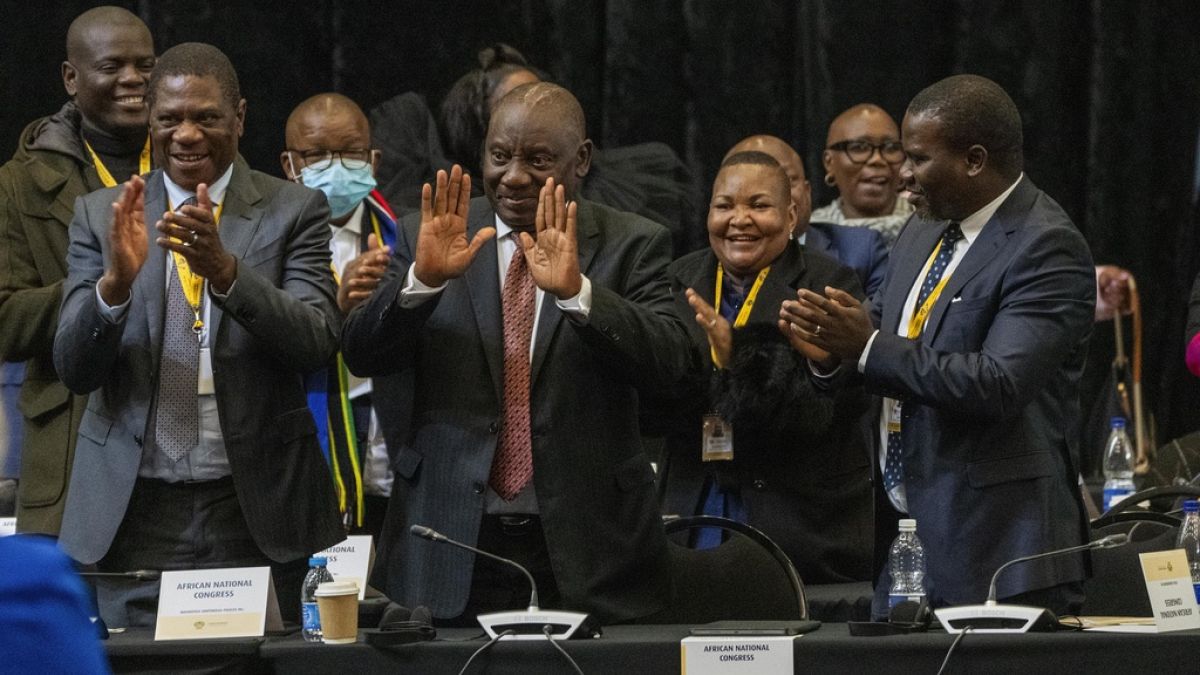South African President Cyril Ramaphosa has been re-elected after his African National Congress (ANC) party struck a last-minute coalition deal with a former political rival just before the parliamentary vote. The deal, referred to as a government of national unity, saw Ramaphosa secure his second term with the support of lawmakers from the Democratic Alliance (DA) and other smaller parties. This coalition marks the first time that no single party holds a majority in South Africa’s Parliament, with parties vowing to work together despite their differences.
Ramaphosa’s victory came as a surprise against a surprise candidate, Julius Malema of the far-left Economic Freedom Fighters. Malema received only 44 votes compared to Ramaphosa’s 283 in the 400-seat house. The ANC’s loss of its long-held majority in a recent election pushed the party to seek support from other political factions to maintain control of the government. Following the coalition agreement, Ramaphosa expressed his commitment to a new era of unity and collaboration in South Africa.
The ANC, once led by Nelson Mandela, has been in power since the end of apartheid in 1994. However, recent election results have shown a shift in the political landscape with the ANC losing their majority for the first time in 30 years. The discontent among South Africans over high levels of poverty, inequality, and unemployment contributed to this turning point. The coalition with the DA, a party known for its centrist and business-friendly policies, has raised concerns about potential complications due to their different ideologies.
The agreement between the ANC and the DA has raised questions about how these two parties will navigate their differences in governing the country. The DA has previously criticized the ANC government’s stance on sensitive issues such as accusing Israel of genocide in Gaza at the United Nations. Despite these challenges, leaders of both parties have expressed a commitment to working together for the betterment of South Africa. The coalition government marks a significant shift in the country’s political landscape and will require both parties to find common ground on key issues.
The coalition government in South Africa represents a new chapter in the country’s political history, as two major parties come together to govern without a clear majority. The ANC and the DA have set aside their past differences to form a unity government that aims to address the challenges facing the nation. This unprecedented partnership will test the ability of political rivals to work together for the common good and could potentially shape the future of South African politics. As President Ramaphosa embarks on his second term, the success of the coalition government will depend on the willingness of all parties to compromise and collaborate for the benefit of all South Africans.










